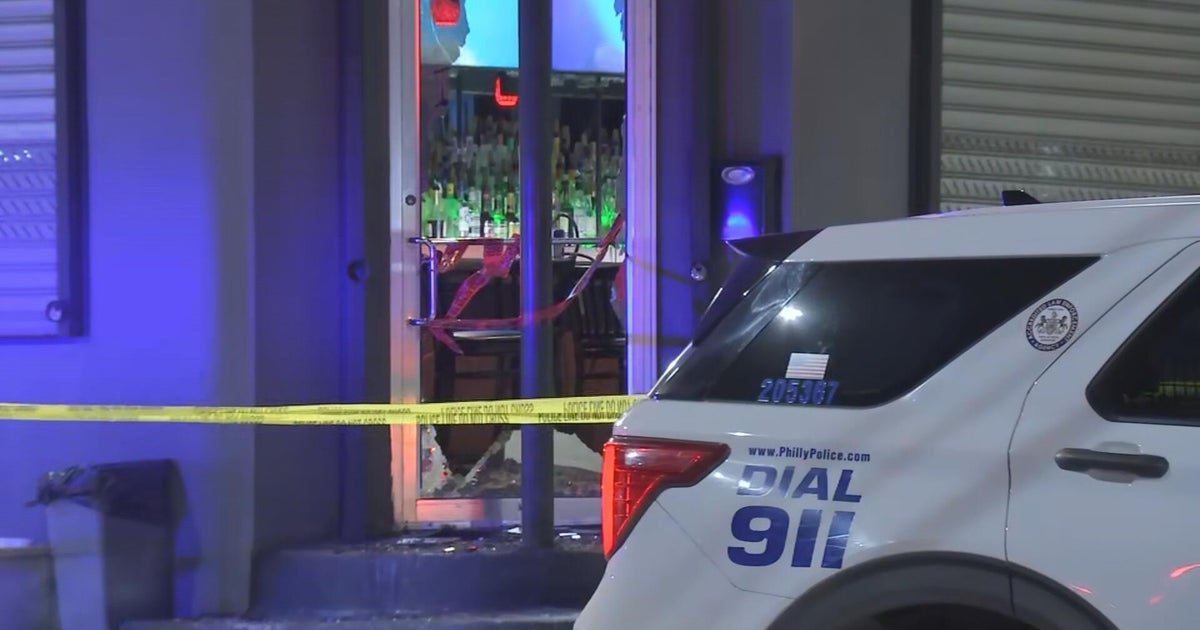Trump Captures Republican Primaries In Michigan, Mississippi; Sanders Stuns Clinton In Michigan
NEW YORK (CBSNewYork/AP) -- Republican Donald Trump has a clearer path to the GOP presidential nomination as CBS News projects the billionaire captured the primaries in Mississippi and Michigan.
And in a stunning upset, U.S. Sen. Bernie Sanders (D-Vermont) defeated Hillary Clinton in the Democratic primary in Michigan, CBS News projects. Clinton won the Mississippi primary earlier in the night.
CBS2's Marcia Kramer reported Tuesday it's a stunning reversal of fortune for Clinton in Michigan after recent polls showed the former secretary of state with a double-digit lead over Sanders.
Sanders' victory is a surprising setback for Hillary Clinton, whom Sanders criticizes for supporting trade deals with "disastrous" consequences for blue-collar workers in Michigan and elsewhere. Clinton proposes a "clawback" of tax benefits for companies that ship jobs overseas.
While votes were still being counted in Michigan, Clinton glossed over her contest with Sanders and jabbed at the Republicans and their chaotic nomination fight.
"Every time you think it can't get any uglier, they find a way," she said. "As the rhetoric keeps sinking lower, the stakes in this election keep rising."
Sanders said the close contest signaled that his campaign "is strong in every part of the country, and frankly we believe our strongest areas are yet to happen."
Republicans are also voting in Idaho and Hawaii.
In his victory speech from Jupiter, Florida, Trump talked about the negative attack ads that went after him ahead of Tuesday's primaries.
"I don't think I've every had so many horrible, horrible things said about me in one week," he said, mentioning that $38 million were spent in the attack ads.
"There's only one person that did well: Donald Trump," he said.
Trump took on U.S. Sen. Ted Cruz (R-Texas), who is closest to Trump in the delegate count.
"He's always saying I'm the only one who can beat Donald Trump," the businessman said. "But he never beats me."
Trump also touched on Mitt Romney's speech last week where the former Republican presidential nominee slammed his companies.
The billionaire brought out the Trump-branded wine, steaks, magazine and water to prove that they are still in business.
"He shouldn't have done it. It wasn't becoming," Trump said of Romney.
Trump also said, "I can be more presidential than anybody."
U.S. Sen. Marco Rubio (R-Florida) told supporters his campaign will come down to Florida.
"It always comes down to Florida, doesn't it? And it will again this year, not once, but twice," Rubio said.
Rubio has received endorsements from a steady stream of senators, governors and other high-profile Republican officials. But his backing from voters has lagged, and he entered Tuesday's contests with just a pair of victories in the Minnesota caucuses and Saturday's Puerto Rico primary.
CBS News estimates that Cruz and Ohio Gov. John Kasich are in a battle for second in Michigan.
Before the primary, Kasich focused heavily on his neighbor in the north.
"If I spent any more time in Michigan, I would have to start paying taxes. I know that," Kasich said. "Have the state of Michigan send the message and launch me into the state of Ohio where we will have a whole new day in American politics."
Kasich received support in Michigan from former Republican presidential nominee Mitt Romney, who recorded a phone message for the governor with one goal: to stop Trump.
Cruz told supporters that he has a "plausible path" to the 1,237 delegates needed for the GOP nomination.
"At this point, there are only two candidates who have a plausible path to 1,237: that is Donald Trump and me. Both of us have over 300 delegates. He has about 80 more than I do. Everyone else is way, way, way below us," Cruz said.
Republican candidates were fighting for 150 delegates, while 179 Democratic delegates were at stake in the party's two primaries. The delegates will select each party's presidential nominee at national conventions in July.
The economy ranked high on the list of concerns for voters heading to the polls in Michigan and Mississippi. At least 8 in 10 voters in each party's primary said they were worried about where the American economy is heading, according to early exit polls conducted for The Associated Press and television networks.
Among Democrats, 8 in 10 voters in both states said the country's economic system benefits the wealthy, not all Americans.
Sanders has sought to tap into that concern, energizing young people and white working-class voters with his calls for breaking up Wall Street banks and making tuition free at public colleges and universities. Michigan, with big college towns and a sizeable population of working-class voters, should be a good fit for him. But Clinton has led in polling.
Sanders' troubles with black voters were evident once again Tuesday. Clinton won nearly 9 in 10 black voters in Mississippi.
Tuesday's contests are a prelude to next week's high-stakes primaries in Florida and Ohio. Like Kasich, Rubio must win his home state in order to remain a viable contender.
If Rubio and Kasich can't win at home, the Republican primary appears set to become a two-person race between Trump and Cruz. The Texas senator is sticking close to Trump in the delegate count and with six states in his win column, he's arguing he's the only candidate standing between the brash billionaire and the Republican nomination.
During a campaign stop at a North Carolina church Tuesday, Cruz took on Trump for asking rally attendees to raise their hands and pledge their allegiance to him. He said the move strikes him as "profoundly wrong" and is something "kings and queens demand" of their subjects.
"I'm not here asking any of you to pledge your support of me," Cruz said, to thunderous applause and cheers. "I'm pledging my support of you."
Some mainstream Republicans have cast both Trump and Cruz, an uncompromising conservative, as unelectable in a November face-off with the Democratic nominee. But they're quickly running out of options and are increasingly weighing long-shot ideas such as a contested convention or rallying around a yet-to-be-determined third-party candidate.
In New York, a new Siena poll shows Clinton leading 21 points ahead of her Brooklyn-born opponent. Trump may also have a home-field advantage in New York -- the same poll shows the businessman leading with 45 percent in the state.
Ohio and Florida are the next big prizes on the election calendar. They both vote next Tuesday, along with Illinois, North Carolina, and Missouri.
Heading into Tuesday, Trump led the Republican field with 378 delegates, followed by Cruz with 298, Rubio with 146 and Kasich with 35. Winning the Republican nomination requires 1,237 delegates to the party's national convention which will select the candidate.
Among Democrats, Clinton had accumulated 1,126 delegates and Sanders 487, including superdelegates. Democrats need 2,383 delegates to win the nomination.
(TM and © Copyright 2016 CBS Radio Inc. and its relevant subsidiaries. CBS RADIO and EYE Logo TM and Copyright 2016 CBS Broadcasting Inc. Used under license. All Rights Reserved. This material may not be published, broadcast, rewritten, or redistributed. The Associated Press contributed to this report.)







